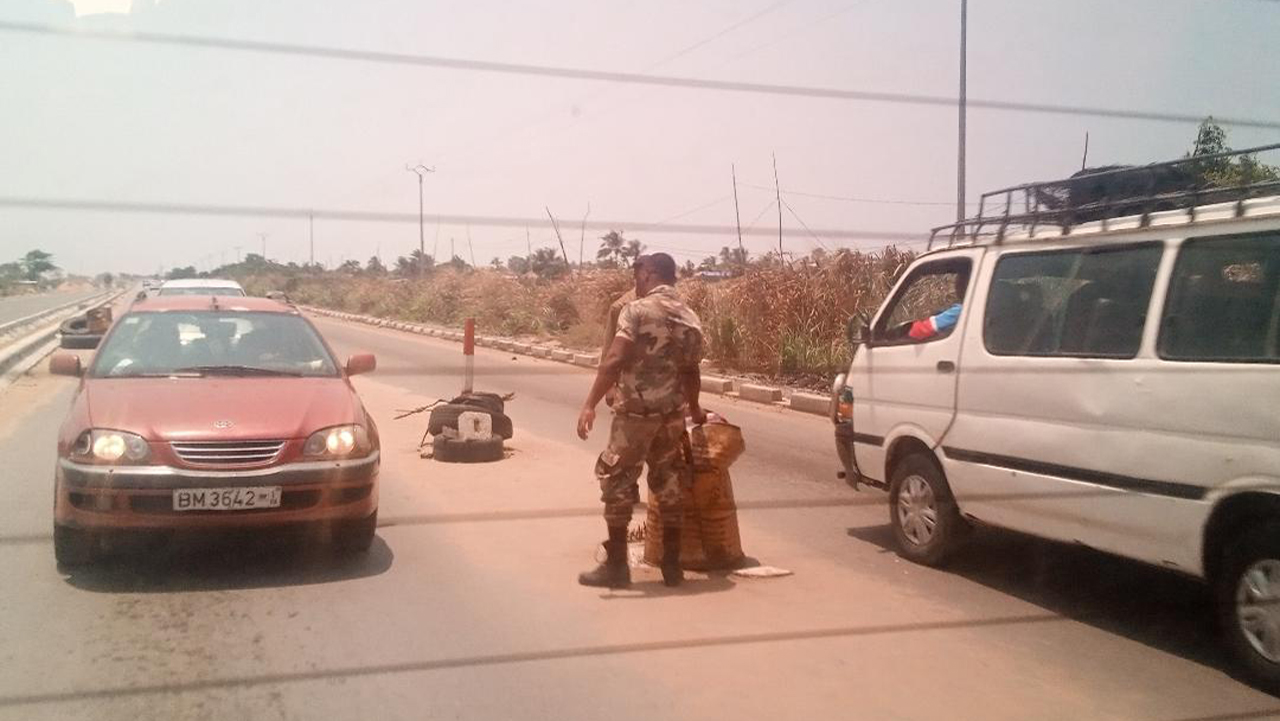
Transport companies, Immigration Officers aid irregular migration
West African countries require visas on arrival to enter one another’s territory. But many of the citizens move across borders without valid travel documents, let alone, getting visas on arrival for their trips. In this report, GBENGA SALAU, who was in Accra, recently, reveals how transport companies collaborate with immigration officers to aid irregular migration in the sub-region.
Dateline: August 20, 2022. It was a dry morning when this reporter arrived at Mile 2 motor park to get requisite information on Lagos-Ghana’s journey without valid documents. All the agents who visited agreed it was possible.
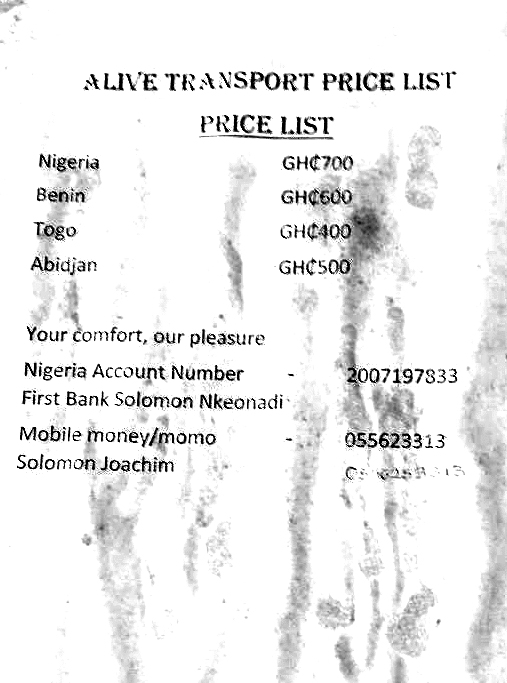
It was during enquiries The Guardian learnt that to make this possible, transport companies had rates for all travellers, whether the passenger has an international passport or not. However, travel without an international passport comes with an additional cost.
According to travelwaka.com, travelling from Lagos to Ghana by road requires an international passport/ECOWAS passport. An international passport is a document issued by the Nigerian Immigration Commission, while the ECOWAS international passport allows the holder to visit other West African states without a visa.
The second document listed by travelwaka.com is the Yellow Fever card. The card is proof the passenger has been vaccinated against yellow fever. It added: “Travellers that are visiting any of the West African countries must have this card.”
The third document listed is an identity card. It noted that: “Though this is not a standard requirement, sometimes, the immigration officers usually ask for it. In addition to having an international passport, you may also have a work identity card (ID) or any other means of identification that is handy.”
Another document that the travel site listed is a document showing proof of accommodation or hotel bookings.
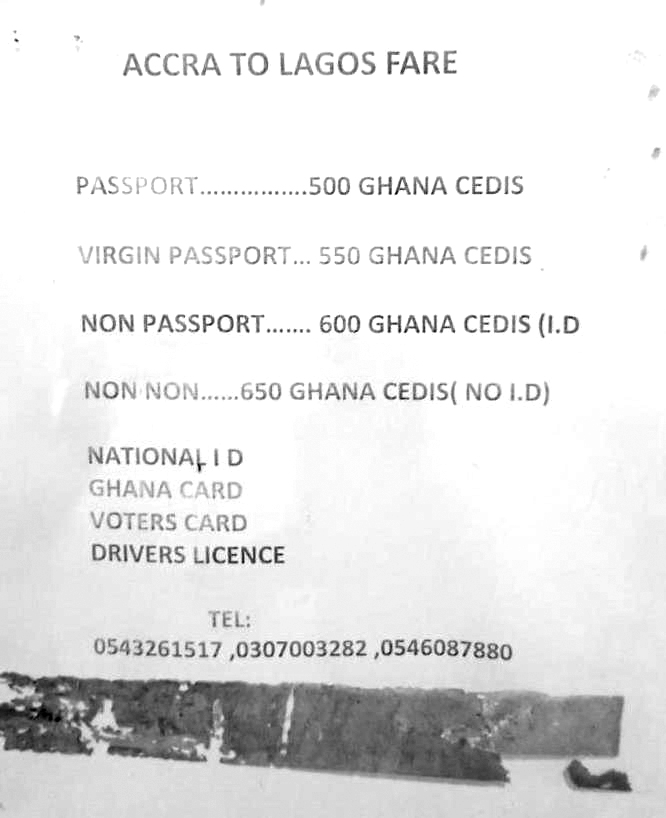
Providing more insight, it stated that a first-time traveller with a virgin passport would pay extra for stamping, disclosing that a virgin passport is a blank passport that does not have a visa.
Another document that a citizen of West Africa could use to move across the West African region is the ECOWAS travel certificate. This is simply a permit that allows citizens of member states to travel to any of the countries in the ECOWAS sub-region without interruption.
The ECOWAS travel certificate serves a dual purpose, that is, as a travel passport within the 16 ECOWAS states and a form of identity to prove the holder is a citizen of the community. It can be held concurrently with the National Passport. It can also be used as official means of identity anywhere in any ECOWAS sub-region.
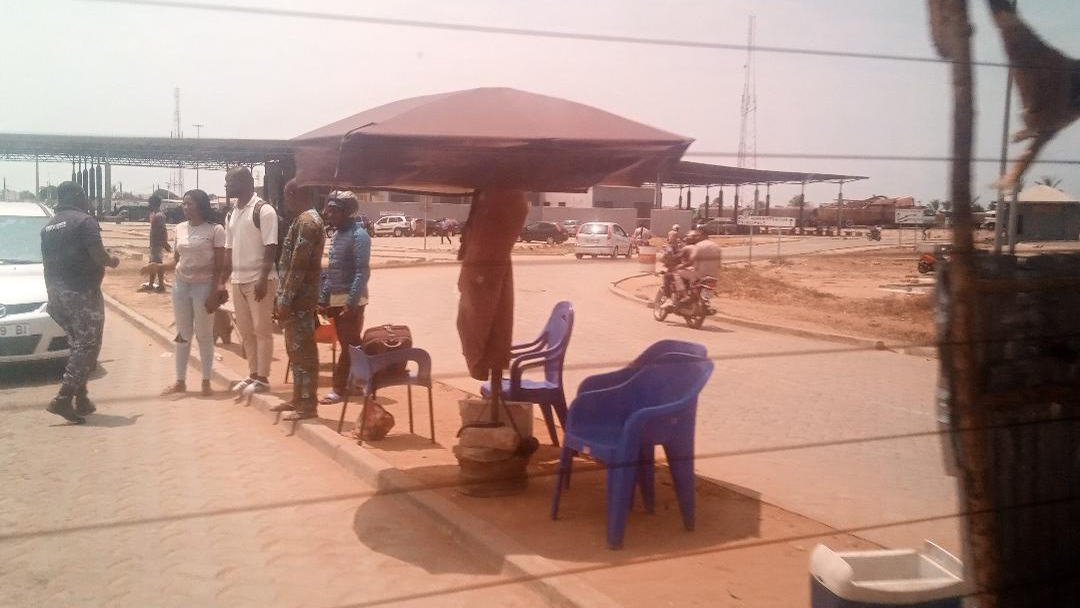
After determining the transport company to travel with, at the park, on the day of the trip, those without international passports or any travel documents were asked to seat in the two back rows of the 14-seater bus, while those with a standard means of identifying themselves were put in the first row and the front-seat beside the driver.
It was a smooth ride until the bus got to Ijanikin-Agbara Bridge, where the driver slowed down for an Immigration officer manning the checkpoint. That was the first checkpoint encountered on the Mile 2-Seme Route.
Between Agbara and Seme Border post, there was nothing less than 35 checkpoints manned by different officers of the Nigeria Immigration Service, the Police Force, Nigeria Customs Service, the National Drug Law Enforcement Agency (NDLEA) and Federal Road Safety Corps (FRSC).
Between Ibiye and Oko-afo bus stops, there were three barriers manned by FRSC officers, Customs and the Police. However, it was only FRSC officer that stopped the bus but eventually allowed the vehicle to move on after the driver had parted with some money.
From Oko-ago to Badagry roundabout, there were five barriers. And from the roundabout to Badagry Bridge, nine checkpoints could be counted, while there were about 20 between Badagry Bridge and the Seme Border post.
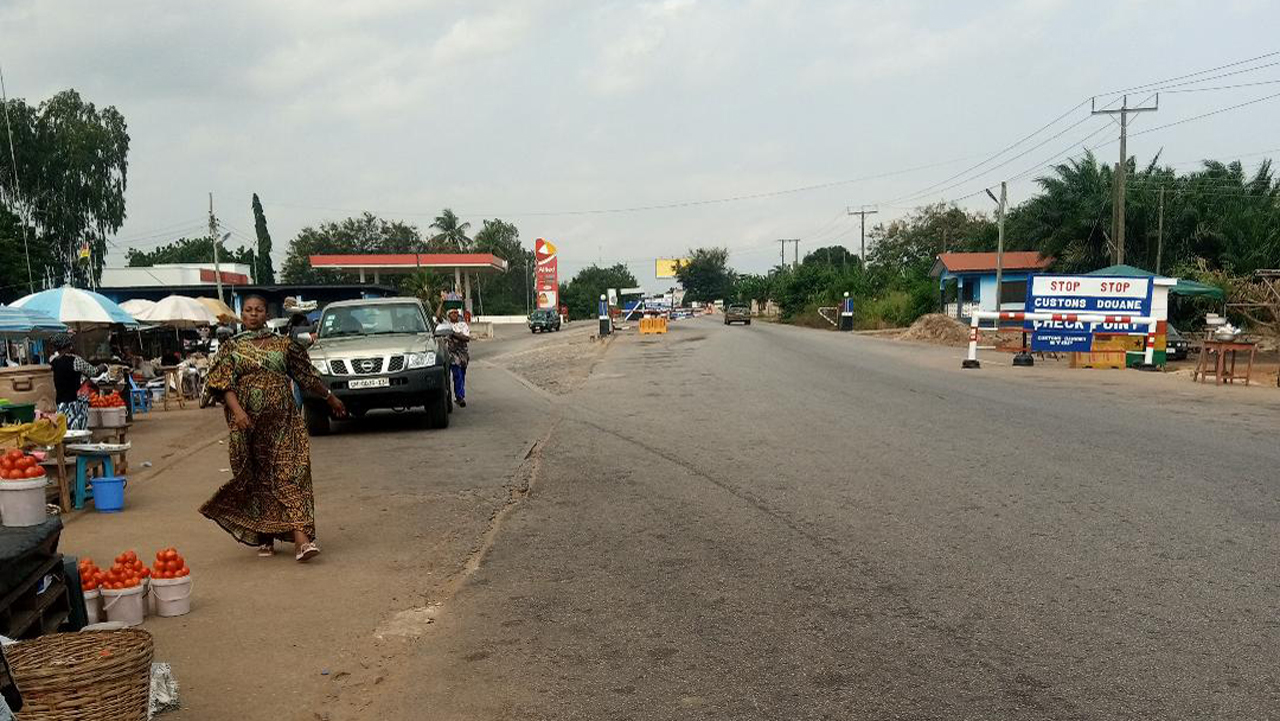
Despite the cluster of checkpoints between Badagry Bridge and Seme Border post, despite the teeming number of travellers on the road without valid travel documents, The Guardian discovered nobody was stopped or prevented from heading on.
In most cases, once the driver ‘greased’ the palm of the officers and pleasantries exchanged, he drives off. The exception was only at about five checkpoints when the bus came to a complete halt.
At each of these points, the driver would park the bus off the road from obstructing other road users, disembark to discuss with officers and when he was done, the journey continued.
At the checkpoints manned by Immigration, their officers never for once verified the travel documents of the passengers in the bus. The best they did was to look into the bus; exchange pleasantries with the driver, and thereafter, beckon on the driver to continue with the journey.
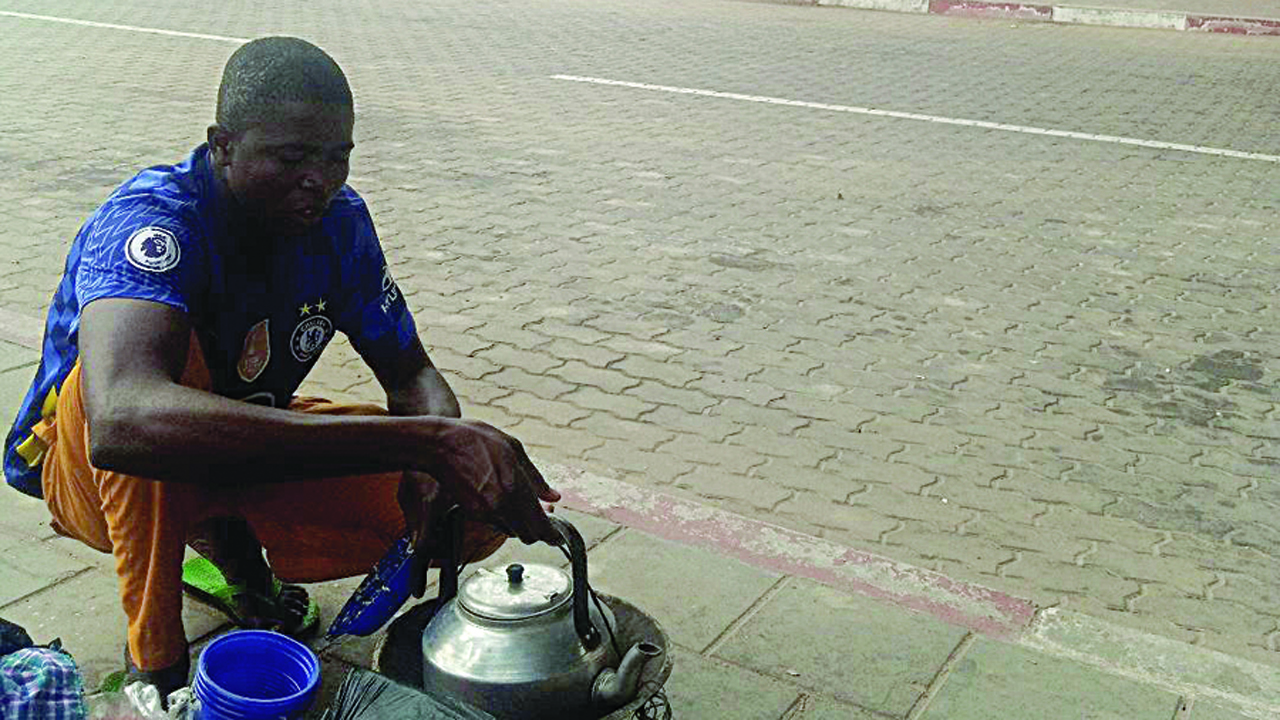
At the entrance to the Seme Border Post, there were four barriers by Immigration, Customs, Police and one other agency. The agency that manned the fourth barricades was not known, because the officer was dressed in mufti, so, it was difficult to identify, which organisation he represented. Each of the officers got something to allow the bus to continue its journey.
Within the Seme Border Post, after the driver parked, he asked that all the passengers disembark from the bus. But it was just for formalities, as there was no verification of any travel document.
Of the 13 passengers on the bus, only five had international passports. The driver took the five passports for documentation with the Immigration officers, with none of the passengers accompanying him to the desk. It was during the documentation exercise that it was discovered by an Immigration officer that one of the five passengers’ passports had expired.
So, the driver returned to the bus, fuming, querying the passenger for submitting an expired passport. He asked if the passenger did not know the implication of his action. The driver said the passenger needed to cough out N10,000 to get back his passport because the Immigration officers had seized it.
The affected passenger was not happy about the development, wondering why the driver did not check the passports to fish out the expired ones, since the driver was knowledgeable about travel rules.
To get back his passport, the passenger gave the driver the fine and some minutes, thereafter, the driver resurfaced with all the five international passports he took away for documentation.
After the hiccup was resolved, the driver asked the passengers to move back into the bus for the journey to continue.
The scenario was only marginally different in terms of the number of checkpoints at the Benin-Togo Hilaconji border and Togo-Ghana Aflao border. The difference was the fewer barriers.
Within Benin and Togo corridors, there were only three blockades. But at each of the checkpoints, the driver gave tips to the officers on duty.
Also, at the Hilaconji border post, the bus just stopped briefly for the driver to hand over the international passports with him to a broker for documentation, without the passengers getting down from the bus. Almost immediately, thereafter, another agent on a motorcycle escorted the bus out of the border post to some meters away from Hilaconji Park. There, the driver parked, to wait for his go-between to return the international passports he handed over to the agent. And when the proxy returned with the passports, the driver gave him some money in CFA and the journey continued.
At the Aflao border post, all the passengers were asked to descend from the bus for documentation. They were ushered into a building to fill out a form, but it was not an orderly activity. This was because practically all the passengers with no international passports later left the building to connect to their bus without completing the form.
Even the passengers with international passports were told how and what to write on the form. It was observed that the immigration officers paid little or no attention to the details filled in the form, as they just collected the filled form and the passport from the passengers.
They told the passengers to leave after submitting the documents because the passports would be handed over to the bus driver. Thereafter, the driver returned with the five passports and randomly picked about four passengers who had just a handful of luggage to take turns to appear before a Customs officer for their luggage to be examined.
Before then, as the bus was approaching the Aflao border post, the driver informed each of the passengers with no international passports that they would part with some money for him to ensure smooth passage for them at the Aflao border post.
He said those without international passports should prepare to pay 50 Ghana Cedis and those with just national identity cards would part with 30 Ghana Cedis.
The journey between Aflao and Accra had its fair share of checkpoints, though it was nothing compared to the number of barricades within the Agbara-Seme Border corridor. There were just 10 barriers from Aflao to Sogakope.
There were four checkpoints between Aflao and Akatsi, while the ninth and 10th checkpoints were at Sogakope.
In all of these points, there was no deliberate effort to check and verify the documents of the passengers. The only exception was at a Customs Douane checkpoint where all the passengers were asked to disembark and walk some metres out of the Customs corridor to rejoin the bus.
BEFORE the return trip, the reporter also visited some of the transport companies in Accra for information on the return journey home.
While some of the transport companies, particularly, the unpopular ones, did not ask for travel documents, the popular transport brands charged higher ticket fares for passengers with no international passports. The ticket fare charged by the unpopular transport companies, it was later learnt was based on the negotiating ability of the passengers.
It was also gathered that most of the unpopular transport companies convey their passengers cutting the journey into parts, with many on the ECOWAS corridor dubbing it the short-short routes.
This is how it works. The passengers are not conveyed in a single bus from Accra to Lagos, rather, a bus would take passengers to Aflao, where a motorcycle would take them across the border. Thereafter, the passengers would join another bus that will take them from Togo to a border community in the Benin Republic, where another bike would convey the passengers to a Nigerian community, usually Pashi or Owode. It is from Pashi or Owode that the passengers will join a boat to Lagos.
At Accra, one of the popular transport companies pasted the rates for the different categories of passengers on a notice board by the company’s cashier. The transport fare for a passenger with an international passport to Lagos was pegged at 500 Ghana Cedis, while a passenger with a new international passport was put at 550 Ghana Cedis.
A passenger with no international passport, but who can present an identity card, requires 600 Ghana Cedis to be on the trip to Lagos, just as the ticket fare for a passenger with no international passport and a recognised identity card was set at 650 Ghana Cedis.
A lady, Favour Chukwuemeka, who was on a round-trip to Ghana from Lagos in May 2022, said her journey was smooth though she travelled with no international passport or as she did not have one.
She revealed that all she had on the trip was the Nigeria national identity card slip and it was the transport company that suggested she came with it.
“I believe the transport company took care of that because while I was paying for the transport fare, the cashier asked if I had an international passport and I told her the truth. It was when she asked whether I had a national identity card and I told her I have the slip and she told me to bring it along when I am travelling.”
Chukwuemeka added that the national identity card slip she took along on the trip was just a formality as there was no reason for it. She said that no officer demanded it or was there a cause for her to present it throughout the journey
Also sharing her experience, Abisola Ogunkoya said it was her first trip to Accra, Ghana and she went with a new international passport. She said the passport was stamped at Seme, Hilaconji and Aflao border posts while heading to Accra and returning to Lagos.
According to her, it was only at the Aflao border post that she presented her international passport to immigration officers for documentation, but it was not handed to her after all the documentation formalities, including capturing.
She revealed that at the other two other border posts, it was the driver that taken the passport to the immigration unit for documentation on her behalf.
Ogunkoya disclosed that the journey back home was not too smooth, especially between Seme and Agbara, as the many checkpoints slowed down the movement.
Similarly, Samuel Adeyemi, who was recently in the Benin Republic, said that he counted over 40 checkpoints between Badagry Roundabout and the Seme Border post, with officers of different agencies manning them.
According to him, it seems the major reason the officers were on duty was to extort. “This is because the driver of the commercial bus I boarded gave money to the officers at almost all the barriers.”
Adeyemi said he had heard and watched on social media the many illegalities along the Seme Border, but he experienced it during the trip.
“I had my international passport on me, COVID certificate and a yellow card. Despite this, the officers insisted that I must pay, but I declined, asking why I should pay for the passport to be stamped. They said it was for crossing and I asked what crossing.
“To be fair, the Nigerian Immigration officers did not ask me for money, probably because I told them I was a journalist, but the Béninois officers insisted I pay 1000CFA, which I did not comply with.
“The Nigerian Health Port Officer verifying the COVID-19 certificate and yellow card also insisted I must part with some money. The officer claimed I did not do a test and I asked, which test? I told him I have used the yellow card on other international trips and was not queried about the authenticity of the card. I, however, did not pay.
“And it was the same experience returning to Nigeria. When the Béninois officers again said I should pay, I asked to see their boss. After standing for about ten minutes, the passport was stamped and I was allowed to go, but I saw a lot of other people paying the officers.
“The irony was that many who are not armed with any travel document move in and out unhindered, probably because they have bribed the officers, but someone with the right travel documents is being harassed to offer bribe too,” Adeyemi stated.
When the National Public Relations Officer of the Immigration Service, Mr Amos Okpu, was contacted on the basic travel documents needed for an average passenger to travel in and out of Nigeria, he said a valid passport and evidence of funds to sustain himself/herself.
On the penalties for not having the documents while travelling, especially when already on the trip, he said: “You will not be allowed into the country.”
Asked if there are concessions for citizens of West African countries to these rules, he said: “Please make out time to read up the ECOWAS Protocol on free movement. It is a free document.”
When he was told that a number of passengers that were interacted with travelled out and into Nigeria without international passports or ECOWAS travel certificates, yet Immigration officers allowed them entry through the border posts, he threatened to report the reporter to his senior editors because he does not know how to answer questions.
A google search revealed that the ECOWAS Protocol on the Free Movement of People and Goods ensures free mobility of citizens of member states, conferring on community citizens the right to enter and reside in the territory of any member state, provided they possessed a valid travel document and international health certificate.
This is besides that member states have the right to refuse admission to any community citizens who were inadmissible under the member state’s own domestic law. The four supplementary protocols adopted between 1985 and 1990 committed member states, among other things, to: provide valid travel documents to their citizens, grant community citizens the right of residence for the purpose of seeking and carrying out income-earning employment, ensure appropriate treatment for persons being expelled, not to expel community citizens en masse, limit the grounds for individual expulsion to reasons of national security, public order or morality, public health or non-fulfilment of an essential condition of residence.
•This investigation is supported by the John D. and Catherine T. MacArthur Foundation and the International Centre for Investigative Reporting



